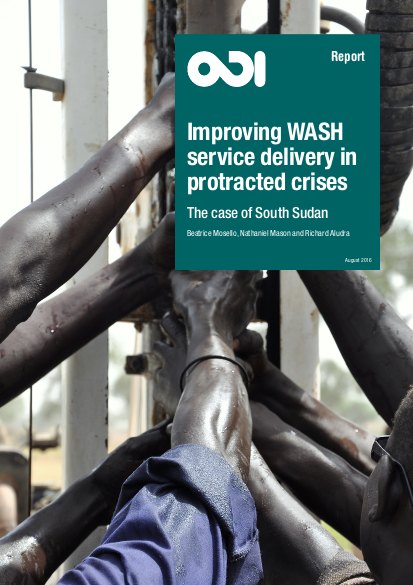
This report examines the structural barriers that exist between humanitarian and development forms of water supply, sanitation and hygiene (WASH), and identifies how they can be overcome for more effective and sustainable services in South Sudan.
We highlight barriers at three levels: the normative level, expressed in the humanitarian and development communities’ respective mission statements, principles and standards; the level of incentives, which are expressed in the signals given by funding and accountability arrangements as well as engrained attitudes to risk; and the level of operational processes for targeting, implementation, staff recruitment and development, and dialogue.
We recommend action to develop mutually agreeable ways of working to provide guidance at the country level and below to tackle the incentive structures created by funding, reporting and risk management structures, and to increase dialogue between humanitarian and development communities within and beyond the WASH sector.
This report is accompanied by a second case study report in the Democratic Republic of Congo (DRC). The two reports examine the challenges and opportunities for better WASH interventions in the protracted crises of the countries.